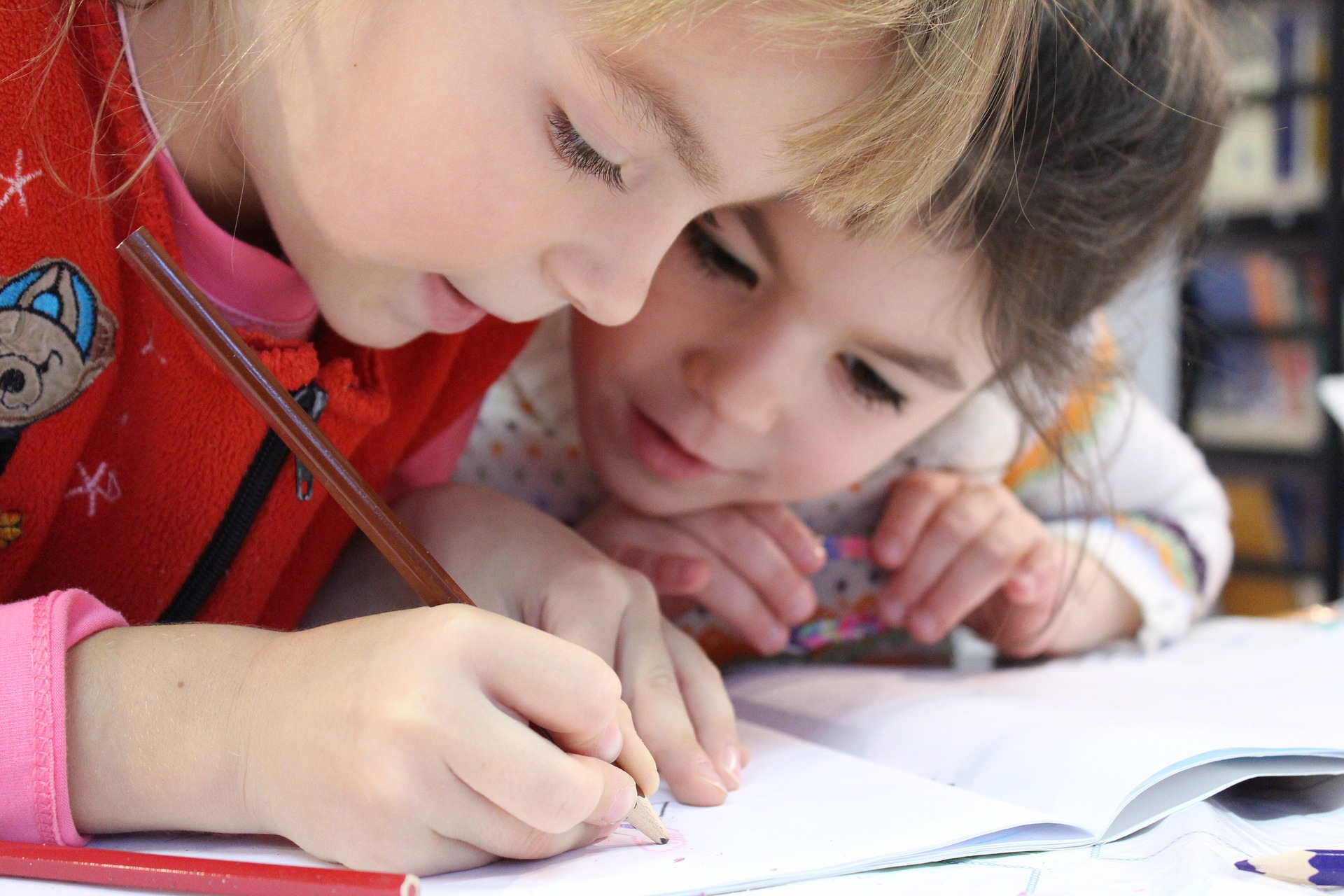There’s much more to ‘back-to-school’ preparation than stationery, uniforms, new lunchboxes and new schoolbags. A healthy body and a healthy mindset do a world of good for children and teens to make sure they start the school year with positive energy and enthusiasm.
With this list, you’ll be able to check off vital aspects to prepare your kids for the new school year, from eye health to bullying.
1. Are their eyes in good health?
It’s frustrating when what you’re looking at is unclear and fuzzy, and it’s the same in the classroom. Not only will children become frustrated, but their learning could be slowed down.

- For young children, learning to write and read might take longer because they can’t see the words clearly.
- If an older student is complaining about poor writing on the blackboard/whiteboard, they might believe the problem is the teacher’s handwriting and not their vision.
- Small children sometimes can’t know they have a vision problem. Likewise, older children may not realise their vision isn’t as it should be.
- Older children might not want glasses due to social insecurities and therefore lie about their vision capabilities.
For these reasons, it can be up to us adults to identify these problems.
Rather than wait for signs, if you have the chance, take them for an eye test before the new school term starts.
2. Sleep and the dreaded early mornings
An established sleep routine, no matter what age, is valuable for any student to have a high level of concentration, productivity, and performance. Sleep is vital for the brain to function because it gives our body the chance to rest, repair and grow.
Melatonin is a hormone that your body produces naturally when the sun goes down. It signals to your body that it’s time to sleep. As difficult as it can be to get children to turn off their digital devices, it’s a must for getting the brain to start producing melatonin faster. Blue light-emitting TVs, phones, tablets, games, and laptops make it harder to fall asleep because the light stops the body from producing melatonin.
Motivate your children to make their room screen-free, or create a rule that no digital devices (e.g.a phone or tablet) can be used in bed.

To decide when their cut-off time for digital devices is, consider how much sleep a child needs on average and make the cut-off an hour or two before bed. For younger children, this could mean replacing a tablet or TV with a bedtime story. For older children, you could encourage reading.
3. Food, glorious food!
Plan breakfast and lunch meals the day before school to increase the likelihood of a smooth morning. While it seems common sense, it’s not something everyone makes time for. Plus, it benefits children in more ways than you think.

Being a sponge for information is tiring work! Learning requires a lot of mental energy and exertion, so sending children to school with wholesome meals and nutritious snacks will set them up for success! They’ll be alert throughout the school day and you can avoid them raiding the house after school for less healthy snacks or stopping by the local shop to buy sweets and crisps.
To increase their chances for success as much as possible, involve them in planning their breakfast and lunch. This has quite a few benefits:
- Preparing meals is a fun school-related activity done from home, particularly for young children.
- The morning will be less hectic.
- The chance of having time for a nutritious breakfast is increased, meaning they will be more alert and ready to absorb information.
- Choosing their own food can give them a sense of independence. Though this is likely best done with the guidance of an adult, as we all know that many children would choose sweets, crisps and biscuits!
- It’s an opportunity to teach children positive eating habits. In a child’s diet, positive eating habits are important for their progressive physical and intellectual development.
The importance of food doesn’t stop at breakfast and school lunch; a family mealtime is important for academic performance, forming stronger relationships and mental health.
4. First day nerves?
Children and teens can be anxious about their first few weeks in a new environment. There are several possible scenarios:
Easing anxiety on the first day of school
- Young children might not have the vocabulary to understand words highly specific to school. Try to teach them words such as “assembly”, “workbook”, and “playground” to lower the potential stress. A lack of understanding about the new environment they’re in increases their anxiety.
- Make sure the child is used to being away from family for a few hours. Examples to achieve this are playdates and summer activity clubs.
- Get them excited about making new playmates. The busier the child is, the higher the chance they won’t focus on missing mum/dad/home.

Anxiety when changing schools or moving from primary to secondary school
- Chat with them about your own experiences or those of other family members. Assure them that your first days were great, or in contrast, maybe they didn’t go so well and you have advice to make their first day easier.
- Remind them that the quality of friends they make is more important than the quantity. It’s natural in life to lose friends and make new ones. This is an opportunity to help them cope with situations they’ll experience as an adult.
- Find out as early as you can from a member of school staff which school clubs or activities are available. Meeting someone with a similar interest will make it easier for your child to get to know someone by talking about a topic they are comfortable with.
5. Bullying awareness
Schools are a place where moral compasses develop, particularly in secondary school. Children learn how to be kind, be firm, be confident, and when to be sensitive to others’ emotions. It’s heart-breaking to think of any child feeling left out and lonely in school.

Each child has their own personality and habits, so no two cases are the same. Nevertheless, school-age children are learning how to communicate with others and there are pieces of knowledge you can pass on to make sure they are compassionate to those around them.
It’s alarming when children are bullied because it can result in a lack of self-worth and confidence in their formative years. This can lead to mental health issues in the future.
- If your child was previously bullied, schedule a chat with teachers and other school staff, such as school counsellors, before the new term begins.
- As with their first day of school, you potentially have words of wisdom to pass on from your own experiences regarding bullying.
Children who bully can be indifferent to the pain their victims feel, resulting in a lack of guilt and understanding surrounding the emotional impact that their actions have on their victims.
- No matter a child’s personality, talk with your child to make sure they understand that upsetting others for pride and popularity isn’t good behaviour. This way, bullying can hopefully be prevented before it needs to be resolved.
6. Have they received recommended vaccinations?
Several vaccines are recommended to be taken at different ages to keep your child safe. The NHS supplies a vaccination schedule for people between the ages of 1 to 70 years old and if you find you or your child has missed any, contact your GP.
It’s possible that your school organises a day for children to receive a vaccination and, if not, schedule one with your GP. It’s quite common that people don’t know which vaccines they themselves or their children have had, and to find out, all you need to do is contact your GP. They keep track of your medical history, including vaccines, and in the unlikely case that they don’t have the information, they would give you a routine test which reveals the vaccines you’ve received.
The NHS offers some free vaccines. Most routine vaccines between the ages of 1 to 18 are free, but some you need to pay for. Click here to find out which ones are free and which ones need payment.
Don’t panic if you’re unsure about your child’s vaccine history. Also, don’t panic if the following diseases worry you; with the introduction of vaccines, your child is protected from these illnesses, some of which no longer exist in western societies.
Some of the most well-known vaccines are for:
- Meningitis, an inflammation of the meninges, which are the protective membranes covering the brain and spinal cord
- Septicaemia, also known as blood poisoning
- Measles, mumps and rubella, which are highly infectious respiratory infections
- Pneumococcal infections, these are pneumonia, bacterial meningitis, and sepsis
Vaccinations that are offered later on include the HPV vaccine, which is usually given to girls and boys who are aged 12-13.
Again, it’s likely your child has had their vaccines, but it’s useful to check before they return to school if they’re caught up with required second doses of vaccines or vaccines they might have missed.
7. Get them in the zone for homework
Homework can be a controversial topic in the household. Nevertheless, it’s a great bonding activity and very importantly, an opportunity for you to identify your child’s strengths and weaknesses.

- Before school starts, ask your child if there is anything they wish they were better at, such as writing, reading, numbers or problem-solving. In older children particularly, this gives you a base for chatting about long-term goals.
- With your child, no matter what age, think of 3 or more skills or interests they want to improve on within the next school year. Looking at things in a long-term way can make goals seem less intimidating and more easily achieved.
- Let your child know you’ll be there to help them, or at least to help find the right person to help them. Sometimes children become stressed and anxious because they don’t know how to tackle homework. They may not always need your support, but knowing you’ll be there when homework gets difficult increases the chance they’ll ask for advice.

- If your child struggles with or excels at a particular skill, consider asking the school if there are ways to focus on it during or in-between classes. By starting at the beginning of term, they will have time to work on it before tests and exams begin.
- Homework can be wonderful for teaching your child about self-discipline and meeting deadlines. Before the school year starts, talk to them about the wider role of homework. It isn’t only about learning new subjects, but about developing valuable life skills they will need in the future.
Overall, prepare your child for homework by showing enthusiasm about their future. Realistically, your child won’t be excited by every subject, but the ones which conjure curiosity and eagerness are the ones that can lead them on the path to success.
There we have it.
- Healthy eyes to see
- No technology to sleep
- Nutritious fuel to learn
- Support to calm first-day anxiety
- Talking to raise bullying awareness
- Vaccines to protect them
- Educating about goals to improve success
Good luck!








